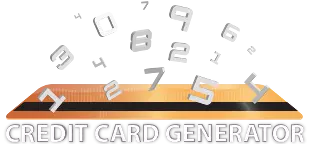Want even more credit card numbers? Generate Credit Cards
MasterCard
- 5597 4367 6666 8275 5597 4367 6666 8275, CVC2:811, 09/29
- 5267 8173 5125 3855 5267 8173 5125 3855, CVC2:934, 04/28
- 5165 6504 1596 2614 5165 6504 1596 2614, CVC2:098, 04/30
- 5207 1310 5138 5097 5207 1310 5138 5097, CVC2:073, 05/29
- 5410 4976 6799 3977 5410 4976 6799 3977, CVC2:634, 04/31
VISA
- 4716 5373 3321 2023 4716 5373 3321 2023, CVV2:776, 03/29
- 4485 2372 9560 9824 4485 2372 9560 9824, CVV2:872, 08/31
- 4969 2344 0174 4152 4969 2344 0174 4152, CVV2:756, 02/29
- 4556 3909 4299 8340 4556 3909 4299 8340, CVV2:105, 03/29
- 4929 0505 8103 7566 4929 0505 8103 7566, CVV2:334, 10/28
How to Improve Your Credit Score: Everything You Need to Know
Think of your credit score as your financial passport. Whether you want to buy a house, lease a car, land your dream job, or even get the best rate on your cell phone plan, your credit score plays a crucial role. This three-digit number quietly influences many important decisions in your life, often before you even realize it.
Why does your credit score matter?
Banks, lenders, employers, and even some landlords check your credit score when making decisions about loans, job offers, or rental applications. A low credit score can mean higher interest rates, fewer choices, and lost opportunities. The good news? Your credit score isn’t set in stone. You have the power to improve it, sometimes faster than you might expect.
Step 1: Find out where you stand
Every journey starts with a single step — in this case, getting your credit report. In the U.S., you can request a free report from each of the three major credit bureaus (Experian, TransUnion, and Equifax) once every year. Visit AnnualCreditReport.com to get started.
Step 2: Check your credit report for errors
Don’t just glance over your report — read it closely. Simple errors like misspelled names or incorrect addresses can creep in, but sometimes there are bigger mistakes like accounts you never opened or payments reported late that were actually on time. If you find any inaccuracies, dispute them right away with the credit bureau. Fixing errors can give your score a quick boost. Also, keep an eye out for outdated negative marks like old bankruptcies or collections that should have dropped off your report.
Step 3: Build healthy credit habits
Here’s where the real improvement happens. The best way to boost your score is to show lenders that you can manage credit responsibly. Here’s how:
- Always pay bills on time. Even one late payment can hurt your score, so set up reminders or automatic payments.
- Keep balances low on your credit cards. Using less than 30% of your available credit shows you’re not relying too heavily on borrowed money.
- Don’t close old credit accounts. The length of your credit history matters, so keeping old accounts open (even unused ones) can help.
- Avoid opening too many new accounts at once. Each new application can cause a small, temporary drop in your score. Only apply for credit when you truly need it.
- Monitor your progress. Check your credit reports regularly, especially if you’re working on rebuilding or improving your score.
Bonus tips to raise your score faster:
- Negotiate with creditors: If you’ve missed a payment but otherwise have a good record, some creditors might agree to remove a late payment from your history once you’re caught up.
- Become an authorized user: Ask a family member with good credit to add you to their card. Their positive history can help your score.
- Handle collections strategically: Paying off collections can help, but check if the agency will remove the account from your report once paid.
- Use credit-building tools: Consider secured credit cards or credit-builder loans if you’re new to credit or need to repair your history.
Bottom line:
Your credit score doesn’t define your worth, but it does shape your financial future. With a bit of knowledge and some steady habits, you can see real progress over time. Check your reports, fix mistakes, build good habits, and take advantage of tools and opportunities along the way. Every step counts, and before you know it, you’ll see doors open, interest rates drop, and your financial confidence rise.


